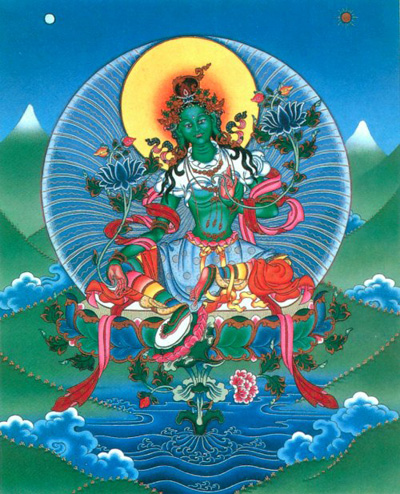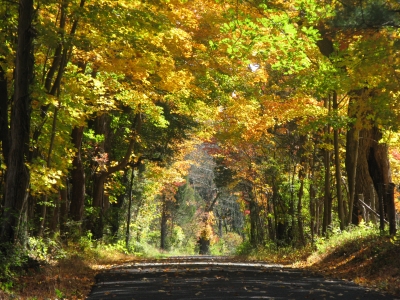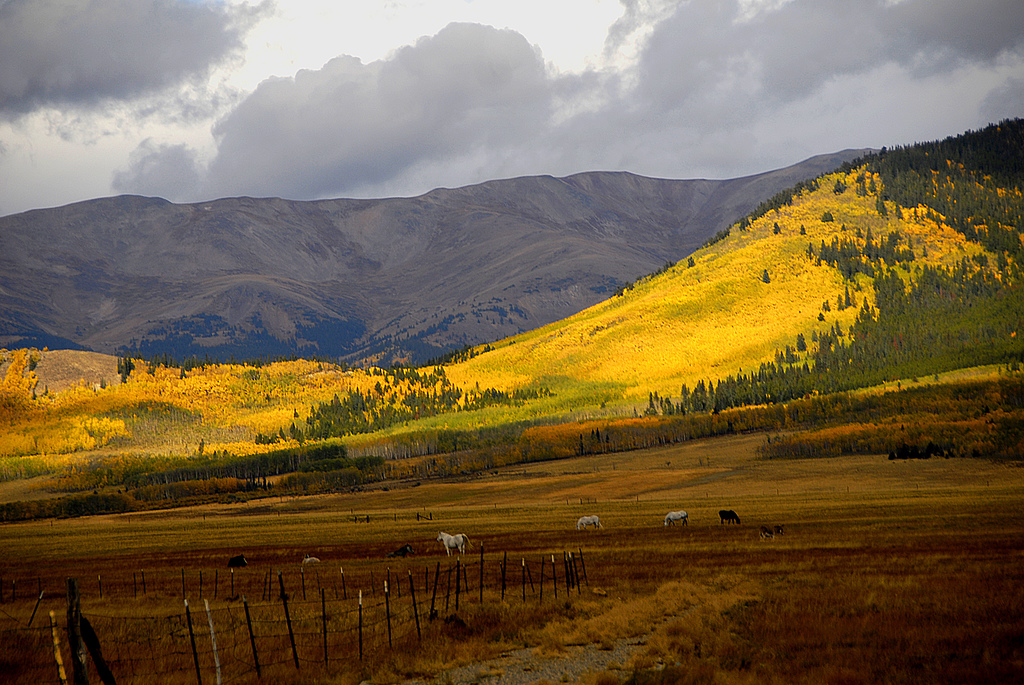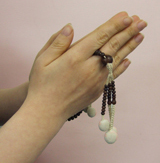
I had been reflecting on why I often feel that I don’t have enough time for my creative interests. So I was looking forward to attending the first Creative Awakening seminar organised by the Institute of Oriental Philosophy UK at Taplow Court, writes Louise Ellis.
The night before the seminar, entitled Ordinary or Extraordinary Living, I was thinking of some possible reasons. Do I spend too much time on meaningless activities? Is my flat too small? Maybe I suffer from attention deficit disorder? Undiagnosed. Mild, of course. My brain often feeling feverish with too many plans and ideas.
And so I was happily surprised to find that the topic of the first talk was 'Attention'.
In a fascinating presentation, Dr Gay Watson, writer and psychotherapist, explored from many angles the importance of attention as a prerequisite for creative awakening. She said, 'Surely there can be no creativity without attention, to focus our minds, clear our minds, open our minds, train our minds, all to provide the space within which the novelty of creativity may arise and be received.'
She made the point that in Western society we tend to focus on external objects and achieving results. 'Considering processes of attention rather than the content or objects of attention is actually fairly uncommon in our culture. We are more used to focusing on information and activity, ends rather than means. This perhaps is the greatest difference and the greatest benefit of studying Buddhism; the focus on process and the use of attention to reveal the construction of our worlds and our selves,' she said.
In a world so cluttered with objects and information, I realized that it can be hard to find space, both within our minds and around us, to feel free creatively. We can be so focused on achievement that our development as creative beings is stunted.
I definitely judge myself on the end product, such as a finished article, novel or painting. And I can get frustrated with myself if I have obstacles impeding my progress. Instead, I realize I could allow myself to feel freer, and respect the process that I am going through as having equal value to achieving a desired finished result.
 Dr Watson pointed out that artists have long known the significance of attention. She referred to the American writer William Least Heat Moon, who wrote Blue Highways, a book about journeying through the back roads of the United States. Dr Watson read out a quote from the book: 'Maybe the road could provide a therapy through observation of the ordinary and obvious, a means whereby the outer eye opens an inner one. STOP, LOOK, LISTEN, the old railroad crossing signs warned.' (Least Heat Moon, 20, p17)
Dr Watson pointed out that artists have long known the significance of attention. She referred to the American writer William Least Heat Moon, who wrote Blue Highways, a book about journeying through the back roads of the United States. Dr Watson read out a quote from the book: 'Maybe the road could provide a therapy through observation of the ordinary and obvious, a means whereby the outer eye opens an inner one. STOP, LOOK, LISTEN, the old railroad crossing signs warned.' (Least Heat Moon, 20, p17)
This makes me ask the vital question: Do we give ourselves time to stop in this hectic world? How can we achieve the mental space needed to look and listen? How we use our senses is vital to the quality of our attention, to how we receive information about the world around us.
Dr Watson goes on to make another vital point, which is that we need to perceive the world without preconception or expectation. We need to be open-minded. Otherwise we can become trapped in the confines of an earlier experience, one that may not be appropriate in the present moment, she explained.
'What are those preconceptions? Pre-eminently, judgement or emotional bias; something that comes before open apperception, something that causes us to interpret what we come across not freshly and on its own terms, but in accordance with our expectation, with the emotions left over from an earlier experience,' she said.
Dr Watson reflects that the process of attention therefore involves revising the way we look at something, rather than being limited by the object itself. In this way we can make the ordinary extraordinary. She refers to the writing of a farmer, Wendell Berry, who finds newness even in the entirely familiar.
 Berry writes, '"It" is always, and not predictably, changing. It is never the same two days running, and the better one pays attention the more aware one becomes of these differences. Living and working in the place day by day, one is continuously revising one’s knowledge of it, continuously being surprised by and in error about it.” (W. Berry 2000. pp 138/9)
Berry writes, '"It" is always, and not predictably, changing. It is never the same two days running, and the better one pays attention the more aware one becomes of these differences. Living and working in the place day by day, one is continuously revising one’s knowledge of it, continuously being surprised by and in error about it.” (W. Berry 2000. pp 138/9)
Dr Watson suggests that the essence of Berry’s revelation is that the limits of knowledge of a place are not in that place, but in our minds. She said, 'It is in the practice of our minds, the practice of awareness that we can struggle to better ourselves and foster creativity. At the heart of Buddhist teachings are practices in attention, practices that encourage us to see what is there, and to know it as contingent, impermanent and unique, part of an ever-changing kaleidoscope of which we too are but an element.'
Once again it struck me how life today, with its focus on newness and change, upgrading and updating, is counterproductive to the deeper way of seeing which is the essence of the creative process of so many artists.
During the afternoon John Danvers, an artist, writer and academic, gave a fascinating talk illuminating how we can tap more into our creativity. He defined creativity as an unavoidable process in life, as unavoidable as breathing. He said, 'There is nothing special about creativity… Each moment of consciousness is a creative moment, a manifestation of the infinite creativity of living and being. What artists do is only one of the infinite forms of creativity, a practice amongst countless creative practices.'
He also pointed out the creativity of many other species, such as 'the blackbird singing endless melodic variations from his perch on the crab apple tree'. He even described clouds as creative, 'endlessly performing subtle or dramatic cloud dances'.
He said, 'Are there any boundaries between patterns of growth and decay in the natural world and the patterns of creative intelligence manifested in the growth of human imaginative constructs? I suspect there are no clear-cut distinctions to be made, unless we consider creativity to be defined by purposeful self-consciousness, in which case the zone of creative practice shrinks to a narrow and greatly diminished sphere of activity.'
This analysis of creativity as a naturally occurring process, as opposed to a 'purposeful self-consciousness', struck me as an important point. In Buddhist terms this could be described as a connection with a greater universal power, as opposed to operating within the confines of the small ego.
He explained that this view of creativity is refreshingly different to the widespread belief that developed during the Renaissance that creativity was a special gift. 'Evidence of divine intervention, of creativity as a "gift" bestowed on a few rather than as an innate attribute of all, becomes part of the cultural sediment of the 19th Century and is canonised in 20th Century Modernism. In this account creativity becomes the prerogative of artists, composers, poets and, occasionally, distinguished "men of science",' he said.
 Like Dr Watson, Danvers underlined the importance of Buddhist practice to stimulate creativity. He described it as 'the development of an open non-discriminatory mode of awareness - "mindfulness" - a disinterested attention to all that arises - a non-centred awareness. In this way the creative stream of human being can flow unimpeded by the desires and demands of the deluded self.'
Like Dr Watson, Danvers underlined the importance of Buddhist practice to stimulate creativity. He described it as 'the development of an open non-discriminatory mode of awareness - "mindfulness" - a disinterested attention to all that arises - a non-centred awareness. In this way the creative stream of human being can flow unimpeded by the desires and demands of the deluded self.'
He said that poets and artists attend to what is around them in a non-discriminatory way. “They are mindful. It is in how and what they notice, and how they share their perceptions with others, that their creativity is demonstrated. They often notice and value what is unnoticed and unvalued by others. In this way the ordinary becomes extraordinary and the mundane takes on a vivid hue.'
He then made the interesting point that through transforming our attachment to a fixed self, the flow of creativity is enhanced. 'Recognising that we need not be defined and confined by an apparently enduring self, we can learn to let go, to change, to move from state to state, to be creative and to creatively be! By shifting our frame of reference we realise that the self is a ceaseless creative dance of embodied mind, constantly unfolding into new possibilities and potentialities,' he said.
This different view of 'self' also has an effect on how we view ideas. Danvers explains, 'These thoughts on selfhood can lead us to question the notion that we "have" ideas. What is it to have an idea? Should it be the other way around - are we "had" by ideas? Do we inhabit ideas, or are we inhabited by them? And who is it who "has" the idea?
'An idea arises as a moment of consciousness. The more we relax our hold on the linguistic or conceptualising self the more likely it is that ideas will arise out of the flux of interactions deep in the neurological system. Being in possessive mode in relation to ideas can be counter-productive. In a sense the less we try to "have" ideas the more likely it is that they will arise. Getting our "selves" out of the picture may unlock the flow of creative neurological activity,' he said.
The concept of originality is also linked to an idea of self, of ego. 'We often think of creativity in terms of originality, making something out of nothing. But of course, all that comes out of nothing, is nothing. A pile of zeros is still zero. We always need material out of which to make something, whether it is paint, bricks, flour or thought. Often creativity involves connecting something to something else, in a new or surprising way. Making connections, or noticing connections, is itself a creative act, and to notice connections is to be connected, to experience the interrelationship and interdependence of all that exists. The feeling of interconnectedness is also often accompanied by a feeling of compassion,' he explained.
I found this view of ideas and originality thought-provoking, and refreshingly different to the Western attachment to an ego-led creativity. And I left Taplow Court after the seminar feeling encouraged by a new concept of how my Buddhist practice (I am a Nichiren Buddhist and chant Nam-myoho-renge-kyo) is helping me to release my creativity. I feel I understand more the way in which the small ego blocks the natural flow of creativity, by limiting us to the need to be 'special' or 'original', rather than focussing on opening up to the flow of universal energy
I also realised that it is not surprising that I often find it difficult to focus, to pay full attention, as I am living in an era of information overload. I am determined to give myself more time and space, to 'Stop, Look, Listen', and to see the world around me with a fresh eye.
More information on future Creative Awakening events are on the IOP-UK website: www.iopuk.org
